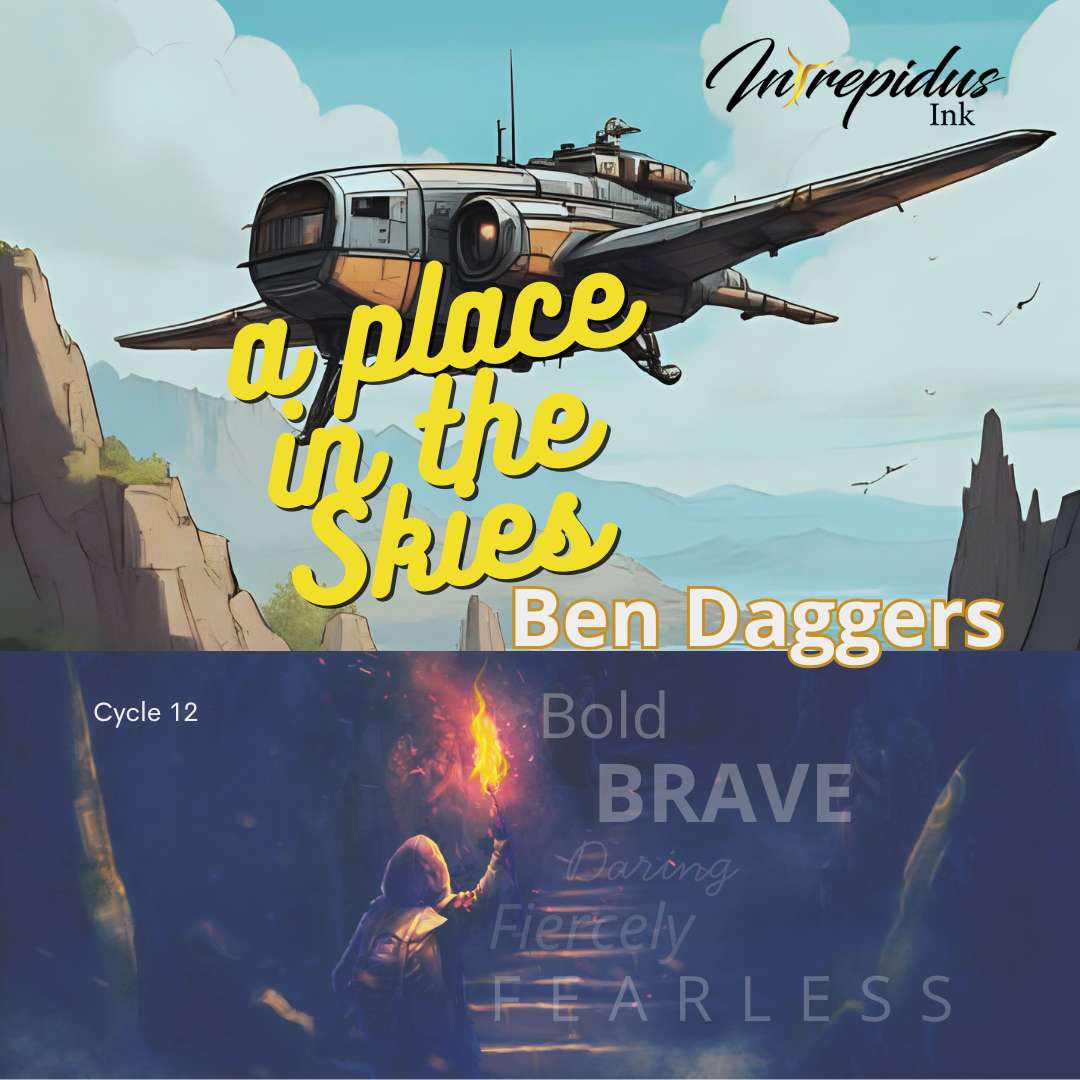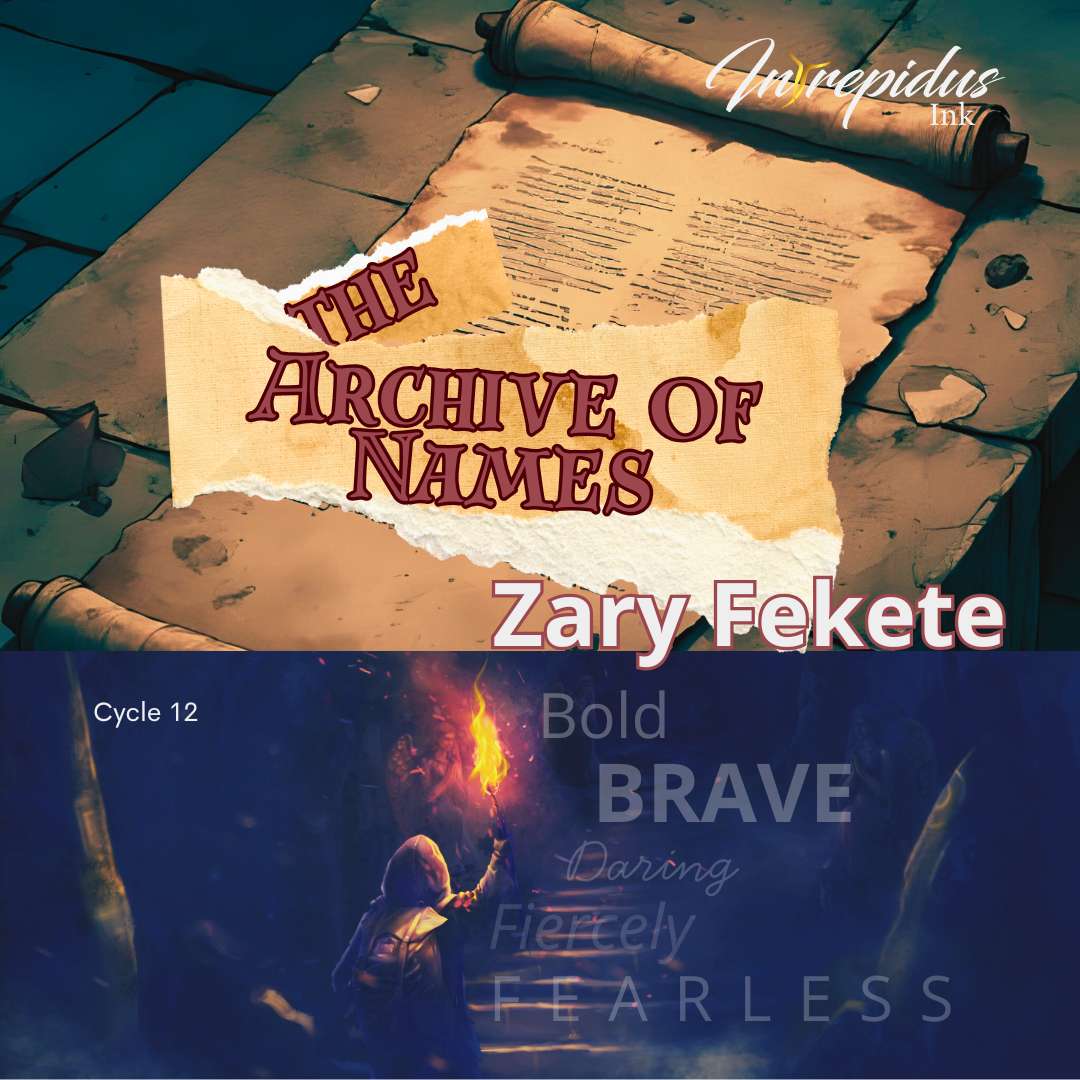
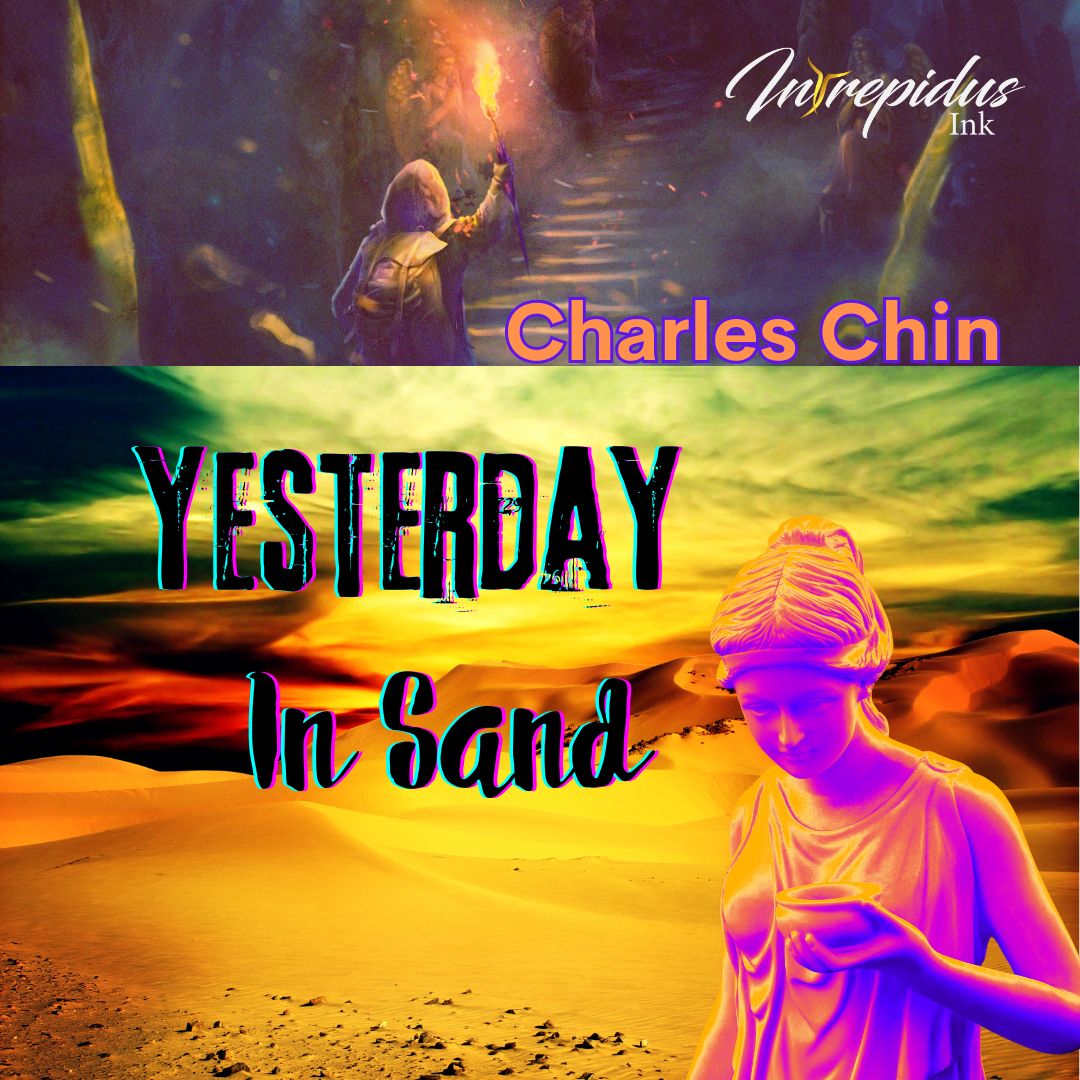
Literary Speculative Fiction
I
carve deep grooves into the face before me, loose sand falling to the ground in small red piles. The eyes stare back at me with conspicuous intent, concentrating as I do on the task at hand. I do not know why my touch forms the sand as it does, why it holds shape against the wind that blows across the desert. But I press into this sculpture my breath, my soul, and it hardens into a memory.
My people live in this oasis in the desert, fed from the east by a wide but shallow river. We live content on the fruits that grow from the trees and the water that flows clear and sweet. The women dance, and the men sing songs without words. When they sleep, the sun rises in the sky again, and they awake with no memory of yesterday.
Yesterday. I use the word but do not know where I learned it. It has meaning to me but not to the others. Did I invent it myself, or was it always a part of me? The others have no use for yesterday. What good is yesterday without memories?
I have use for yesterday.
Each yesterday is a sculpture; each sculpture is a memory of a day long past. The desert expanse stretches away from the oasis in all directions, but I look at the landscape before me and see my memories like saguaros thrust from the ground. I see a life lived for days upon days, see the changes of my face in the sand, set like stone.
I do not remember when I began building these memories in the sand. The memories themselves only exist in my mind if they exist in the world, so to remember before my first sculpture is to look into nothingness. Yet I can see my first memory, there in the distance, not much more than a column of sandstone, stripped of detail by the wind.
There is a woman, Aeta, who I dance with more than others. She brings me joy when we touch, when we laugh. I have the silhouette of her figure burned into my mind from when she reached for a pawpaw fruit in front of the morning sun. I want to etch these moments against the horizon with hands that grow calloused from rubbing grit into shape.
I call to her one day, drawing her eyes away from the sparkling waters and playful splashing. What is it, Keye, she asks as she runs to me. I ask her if she would like to know of yesterday. Would she like to see the fruit as it grows on the tree, each day larger than the next until it falls to the ground with plentiful juice?
She says she does not know what I am referring to. What is before? And what is then? She has no interest in yesterday, she says. The word has no meaning. She wishes I would come and play in the water instead of in the sand.
She leaves me among the low desert dunes and returns to the oasis. Red dust flows around me with the breeze, coloring my skin until I appear as one of my statues. My fingers move by their own command, clutching handfuls of sand from the ground and pressing them together. I squeeze, I pull, I drag my thumbs across the surface until I see her form. Her face. Even in this bust of sand, the eyes still pierce my being.
I awake with a violent shake. It is Aeta; her dark hair shields the sun from my face. She asks me what I have done. I do not know what she means. She says her mind swells with visions of things that happened but are not happening now. I tell her she is remembering, that she is coming to understand yesterday. I smile at her, wishing to share the joys of remembering. Of seeing the leaves grow from yellow to green. Of watching the bend of the river change as silt builds and builds until the water overruns the banks to cut a new path.
She listens as I speak about the meaning of words we can use to describe time’s passing. I tell her of the birds that come and stay for days, then disappear for many more before returning. I see in her eyes the beginnings of understanding.
We place our feet into the river, feeling the cool water around our ankles and the smooth stones beneath our toes. She lays her head on my shoulder, and the warmth of her skin sets fire to my soul. I want this moment to last forever.
I ask Aeta to come with me to the field where my memories stand. I lead her by the hand among the statues, pointing to specific ones that hold significance to me. She says nothing. I pull her close and set her on a nearby stone so she may watch me work. I sculpt for my audience of one, digging sand from the ground and creating a memory I had never done before–a shared memory. Two figures intertwined, heads pressed together in harmony.
We sleep under the stars. We bask in the rising sun. Cultivate our own tree from seed to fruit. We build a life one memory at a time. Aeta watches me create each sculpture, intently focused on the movement of my hands. I try to share my gift, my ability to hold yesterday in my hands and place it into the sand, to no avail. The grains slip through her fingers like the river through the desert.
It is midday when she sits down next to me, where I drag a branch through the dirt, delighting in the tangle of patterns. Her sadness strikes me suddenly, and I ask what is wrong. She says she no longer wishes to know of yesterday. She explains that her memories no longer fill her with joy but with melancholy. She uses a word not known to me: regret. She says a bird visited each day, one she had taught to eat from her hand. In a moment of curiosity, she accidentally injured the bird, and it no longer returned to the oasis. Remembering what was, she says, fills her with deep sorrow. She sees the stars shift above her, her memories betraying their gradual movement across the sky. To know that such vast changes in the world are possible fills her with hopelessness. Of being less than.
I tell her that these are just passing feelings and that making more memories will bury the bad with the good. She is distant. She does not believe me. I will show her. I will take her to the most joyous places I can think of and make her happy in the ways only I know how. She will appreciate yesterday the way I have come to.
I awake to emptiness beside me. I stand to look for Aeta, but I do not see her near the river or among the fruiting trees. She is not in the oasis at all. The morning sun glows orange through the dusty wind when I find her among the memories we share. She stands before the first statue I made in her image, the first yesterday, so long ago. She stares at it as if into a mirror, tracing the curves of her cheeks and the corners of her mouth.
Aeta, I call out, but she does not turn. I watch as she raises a fist in the air and brings it down upon the face looking back at her.
She strikes again and again, and I rush to stop her, but I am too late. I grab her wrist and force her to me, ask her why. My voice rises as it never has before. She struggles in my arms and yells at me, telling me I had no right to do this to her without her say. That she did not choose to remember, to learn of yesterday and all the sorrow that would follow.
She says she wishes to forget. The burden of days that can no longer be changed weighs on her. The memories crowd out the joy of here and now, like the nectar of flowers and the sun through a spray of water. Tears fall from her face and darken the ground at our feet.
I let go. I watch as she moves from memory to memory, toppling her likeness with hands, and fists, and feet. Dust rises from the wreckage like a fog, obscuring her in a way that makes it difficult to know which are figures or her. The air fills with choking sand and clattering like pottery smashed to pieces.
Silence falls. Dust falls. Sand falls in piles on the ground. I look across the field to find copies of myself in various states of misery. Some lean against nothing, their support crumbled beside them. Others bow their heads towards empty arms that used to embrace another but now circle only air. I find Aeta kneeling, a fragment of a now-forgotten life crumpled in her lap.
We say nothing as we return to the oasis. She crawls into my arms, and we share one last night under the stars, her body pressed against mine. In the morning, I awake alone once again.
I find her by the river, drawing cool water to her lips. She turns and calls me over, eyes bright with wonder. I ask her if she remembers yesterday. She does not understand my words. She asks if I would like to frolic in the clear waters and pull stones from the riverbed with our toes. I see the joy on her face. I tell her I will meet her soon, and she runs off to join the others.
There is a cave a half day’s walk from the river, cut into the side of a great mesa. I discovered it not long after I first began building memories in the sand. The opening is small, but once inside, there is room to stand. Here, I sculpt one final piece, a memorial to love found and love lost. I know now the pain Aeta spoke of and the burden that comes with remembering. But I want to remember. I want to remember the time spent dancing, of fruits shared, of words given and taken.
The statue looks up as if through the stone roof of the mesa to the sky above, arms clasped against its chest, hands to its shoulders in an embrace. I step outside the cave and pile stones at the entrance. No wind will blow against its brow and fade the memory. No hand will come to pull it down or, in turn, pull it from my mind. My sculpture will stand forever, and I will remember forever.
The river stretches into the east, from where I do not know. But I take what little I can carry and set off to find out. I leave behind pieces of myself scattered in the desert–one life lived from beginning to end. I start over at the bank of this river. I start again with the oasis behind me. I mark a new life, making statues out of sand and memories out of the earth. Sand stretches as far as the eye can see. Perhaps I may make memories with it all.
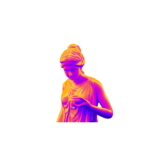
Author Bio
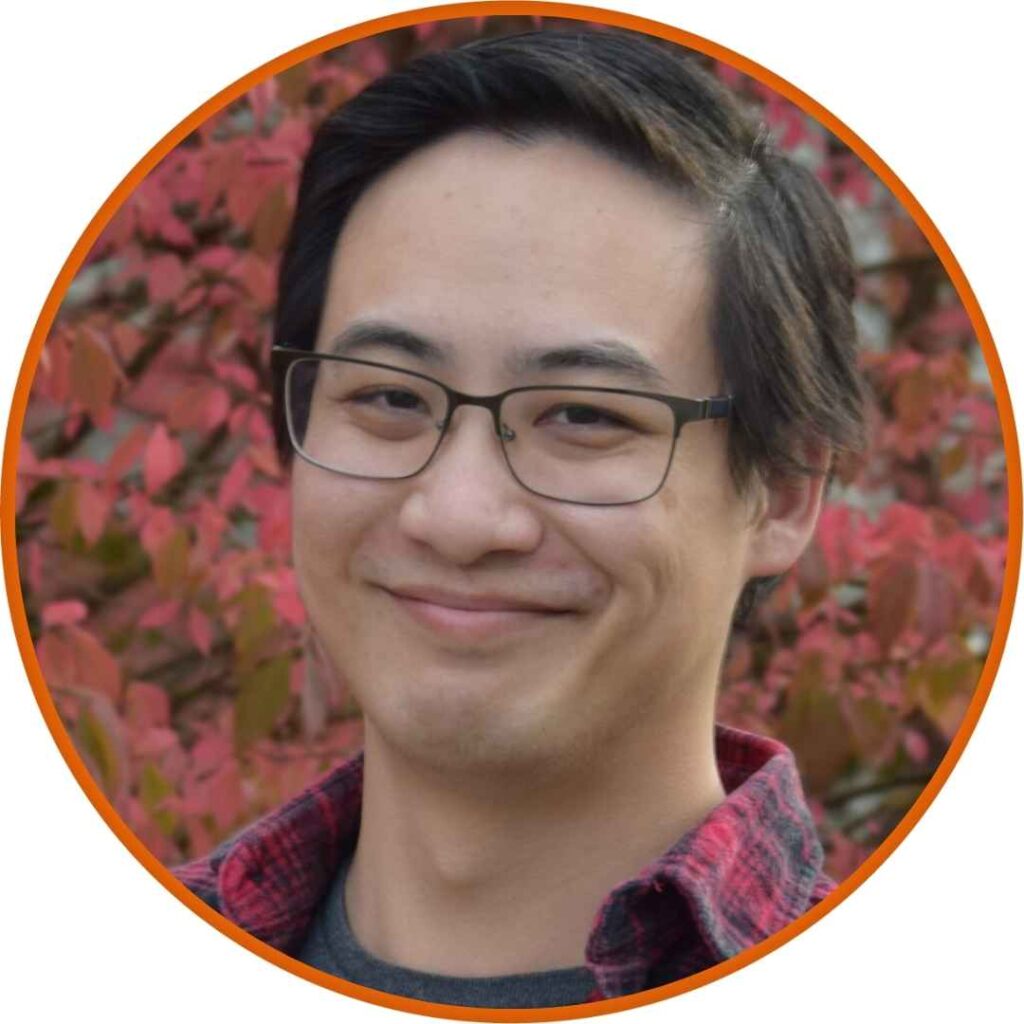
Charles Chin was born in Oak Ridge, Tennessee. Raised by scientist parents to be a scientist himself, he needed a creative outlet to offset the rigid worldview of doctoral degrees and data science. He still writes about science but on his own terms. Should you come across Charles in the wild, know that he prefers rum over whiskey.

